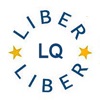An Overview of Research Infrastructures in Europe - and Recommendations to LIBER
DOI:
https://doi.org/10.18352/lq.8028Keywords:
research infrastructures, LIBER, research librariesAbstract
Research infrastructures (RI) include major scientific equipment, scientific collections, archives, structured information and ICT-based infrastructures and services3. They support top-level research and can be organized at the national and regional level, at EU Member State, European and global level. RIs have become a topic of interest and priority for funders, political bodies, and (increasingly) institutional decision makers. In Europe the European Commission is a funder of RIs, complementing funding done by EU Member States at the national level. Over the last ten years hundreds of RI-projects have been planned and some received funding for design, extension and improvement of operations and services to scientific communities. The ESFRI4 roadmap for research infrastructures represents a financial volume of approx. 20 billion EUR for ten years to construct 44 RIs. From the perspective of realizing the objectives set for RI, 2012 is an essential milestone, as the discussion of the HORIZON 2020 programmes at the European level will take place as well as consultations with member states. The following overview is by no means complete. It focuses on some RIs majorly influenced by the production and management of scientific information and which have relevance for the European political and funding agenda. RI projects include a variety of typologies, ranging from hard, single-site facilities to distributed, soft facilities relying on networks. Typically they have emerged from discipline-specific or cross-disciplinary requirements. RIs produce, process or manage big and small but heterogeneous volumes of information. They are the so-called ‘scientific data factories’ of the 21st century. They comprise various types of information resources such as publications, digitized collections, learning objects and research data. Key issues on today’s agenda for RIs are their uptake by researchers, and their viability, sustainability and interoperability. Research libraries’ engagement with RIs has been low. While this could be understandable in 2005 when the first priorities for RI investments were defined, it now represents a big gap in the European strategy. Key initiatives such as the ESFRI Research Infrastructures involve no participation by research libraries, except for DARIAH. Participation in EC-funded projects (through LIBER or directly through institutions) focused (with a few exceptions) on the areas of digitization, cultural heritage and publications. Research libraries need to become visible actors in strategic discussions on RIs and should actively explore their engagement in research data infrastructures. Open Access, open science (data), research data infrastructures and management are the catalysts to get research libraries back into the awareness of researchers beyond the humanities and social sciences. ‘Open Access is global — but implementation is local’. This is a popular slogan of the OpenAIRE project and gives local research libraries an important role in the European context. Research data are discipline-specific, but policies, workflows and standards also need to be implemented at the local level. Creating participatory infrastructures by involving institutional, national and disciplinary actors has been identified by the EC as a key task for the current decade. The term ‘participatory’ is also considered to be of fundamental relevance for European policy strategy, as it matches well with national and European coordination for cost efficiency and is instrumental in avoiding duplication of work. The primary challenges to building a coherent, fundable and sustainable ecosystem do not lie in ICT technology, but rather in governance, law, organization, socio- cultural aspects, trust, and, of course, costs.Downloads
Download data is not yet available.

Downloads
Published
2012-04-10
Issue
Section
Articles
License
Copyright (c) 2012 Norbert Lossau

This work is licensed under a Creative Commons Attribution 4.0 International License.
How to Cite
Lossau, N. (2012). An Overview of Research Infrastructures in Europe - and Recommendations to LIBER. LIBER Quarterly: The Journal of the Association of European Research Libraries, 21(3-4), 313-329. https://doi.org/10.18352/lq.8028





